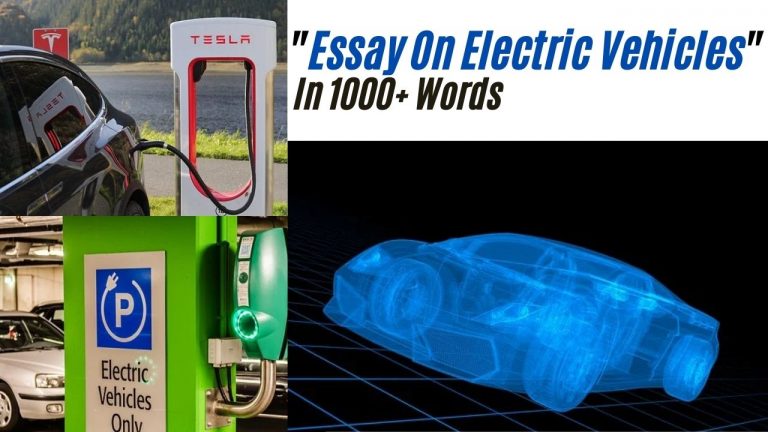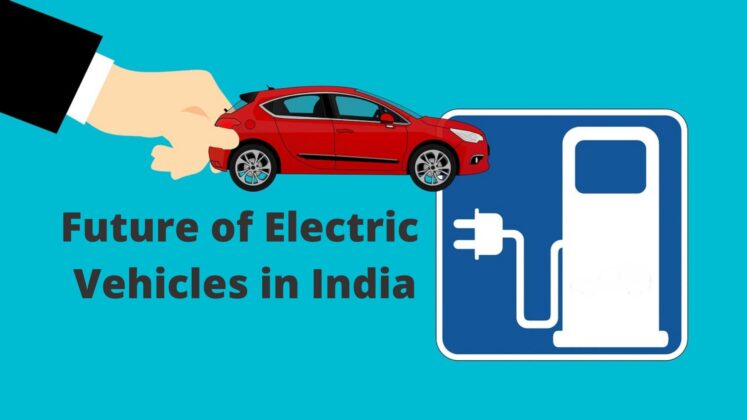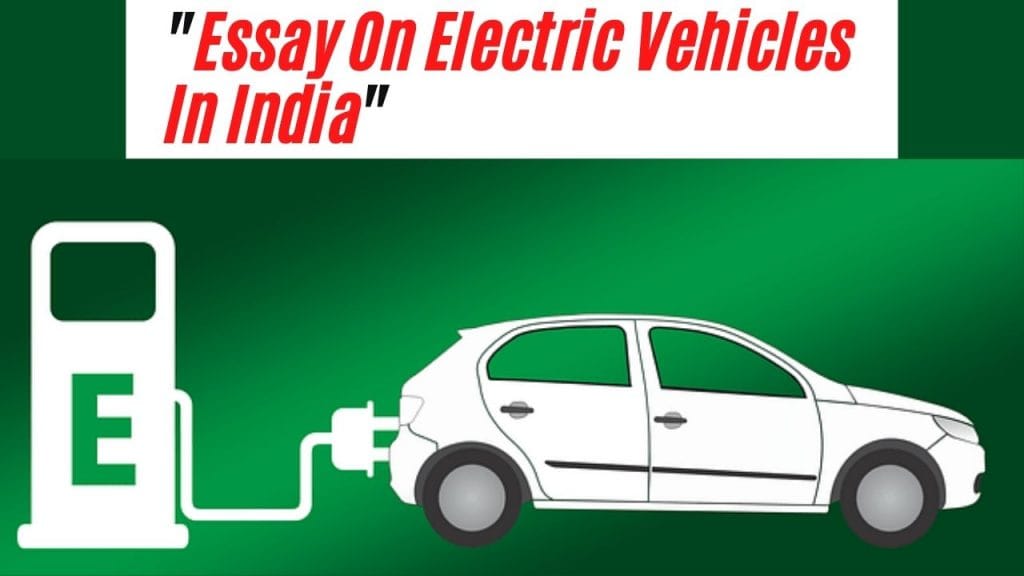If there's one thing that's become significantly clear lately, it's that the world needs to switch to cleaner energy sources. Electric vehicles are among the efforts to help reduce carbon emissions, which in turn can help address the issue of global warming. In India, there has been an increased focus on electric vehicles. So, the question arises: is India ready for electric vehicles (EVs)? Let's explore this topic in a bit more detail.
What Are Electric Vehicles?
Before we get into discussing whether India is ready for electric vehicles or not, let's take a moment to understand what electric vehicles are. Electric vehicles are those that use electric motors and battery packs to function instead of internal combustion engines that use petrol or diesel. This change in the source of energy reduces the amount of pollutants, including carbon emissions, that the vehicle releases into the atmosphere.
The Current Situation of Electric Vehicles in India
The Indian government has shown a lot of interest in promoting electric vehicles, and a significant investment has already been made in this sector. One of the reasons for this heightened focus on EVs in India is the alarmingly high levels of pollution in the country's major cities. Electric vehicles offer a more sustainable and cleaner alternative to traditional vehicles.
In the recent past, numerous initiatives have been announced to promote electric vehicles. For example, India aims to have about 30% of its vehicles running on electricity by 2030. In addition, the government has offered incentives for EV buyers such as a reduced Goods and Services Tax (GST) and an exemption from road tax. Various state governments have also provided additional subsidies and incentives to consumers and manufacturers.
Is India Ready for Electric Vehicles?
While the government seems to be taking all the necessary steps to promote electric vehicles, the question still remains about the country's readiness to accommodate EVs. Here are some of the factors that need to be considered:
Infrastructure
The most pressing issue when it comes to electric vehicles is the lack of adequate infrastructure to support them. Electric vehicles require charging stations at regular intervals, which must be installed in both public and private spaces. At present, there are not nearly enough charging stations in the country, and this shortage is a significant impediment to the widespread adoption of EVs.
To put this in perspective, as of 2020, there were around 1,800 charging stations in the country, with most of them located in major cities such as Delhi, Mumbai, and Bengaluru. This number is woefully insufficient to support the increasing demand for electric vehicles. However, the good news is that there have been recent efforts to develop charging infrastructure across the country. For instance, the government had launched the Faster Adoption and Manufacturing of Hybrid and Electric Vehicles (FAME) scheme in 2015. This scheme provides a subsidy for the installation of public EV charging infrastructure.
In addition to public charging stations, home charging units are also essential for electric vehicle owners. Home charging units are a convenient option for EV owners as it allows them to power their vehicle from the comfort of their homes. However, the cost of installing these units can add up to a hefty sum, which may present a significant obstacle to the widespread adoption of EVs among the masses.
Pricing
Another significant challenge that hinders the adoption of electric vehicles is their high price in comparison to traditional vehicles. While the long-term benefits of EVs are unquestionable, many buyers may not be able to afford the upfront costs involved. For instance, the average electric car can cost anywhere between 10-50% more than an equivalent petrol or diesel car.
However, it is important to note that over time, owning an electric car can be much cheaper than owning a traditional vehicle. Electric vehicles are much cheaper to operate, and the cost of electricity is significantly lower than petrol or diesel. In addition, the maintenance costs of electric cars are also lower since there are fewer parts that undergo wear and tear. As this technology becomes more widespread, prices may also come down.
Range Anxiety
Range anxiety is a common issue faced by electric vehicle owners. Range anxiety refers to the fear that the battery of the car may run out while on the road, leaving the driver stranded. This anxiety stems from the limited range of electric vehicles which is typically less than 200 km per charge.
However, the technology is rapidly evolving, and many new electric cars now have a range of 300-400 km per charge. Nevertheless, the limited range of electric vehicles continues to be a significant concern for potential buyers.
Manufacturing
Another critical factor to consider when it comes to electric vehicles is their manufacturing in India. The Indian government has been promoting the Make in India initiative, which aims to establish India as a manufacturing hub. However, when it comes to electric vehicles, most of the components are imported. This dependence on foreign imports can limit the progress and growth of the domestic EV manufacturing sector.
However, there are initiatives to overcome this challenge. For instance, the government has allowed 100% Foreign Direct Investment (FDI) for the manufacturing of electric vehicles in India. This move could encourage foreign investors to set up factories in India for EV production. In addition, the government has also offered incentives to boost the manufacturing of EVs in the country.
The Future of Electric Vehicles in India
Despite the challenges, the future looks bright for electric vehicles in India. The Indian market for EVs is anticipated to grow at a significant pace over the next few years. This growth can be attributed to the government's push towards cleaner forms of energy and the rising awareness of the environmental impact of transport.
Additionally, electric vehicles have the potential to create significant job opportunities. India is a large market for two-wheelers, and electric two-wheelers have already gained significant traction in the country. The manufacturing and selling of electric two-wheelers could create substantial employment opportunities in the country.
In conclusion, while there are still significant hurdles that need to be overcome, the future of electric vehicles in India certainly looks promising. With the right infrastructure, pricing, and manufacturing policies in place, India can ultimately achieve its goal of a cleaner transportation system while stimulating economic growth and job creation.
If you are searching about Essay On Electric Vehicles In India | Electric Vehicles Essay In you've came to the right web. We have 8 Images about Essay On Electric Vehicles In India | Electric Vehicles Essay In like Is India ready for Electric Vehicle Manufacturing? - Semiconductor for You, Is India Ready For Electric Vehicles? - Electric Vehicle News India and also Is India ready for Electric Vehicle Manufacturing? - Semiconductor for You. Here you go:
Essay On Electric Vehicles In India | Electric Vehicles Essay In
 www.indianconstitutions.com
www.indianconstitutions.com Is India Ready For Electric Vehicles: GD Topic - Best GD Topics
Is India Ready For Electric Vehicle Manufacturing? - Semiconductor For You
electric india vehicle vehicles manufacturing ready announces nepal evs leading giant auto
Is India Ready For Electric Vehicles? - Electric Vehicle News India
 electricvehiclenewsindia.com
electricvehiclenewsindia.com Essay On Future Of Electric Cars (Automobiles) In India
 iwikihub.com
iwikihub.com essay
Future Of Electric Vehicles In India - Ajanabha Digital
 digital.ajanabha.com
digital.ajanabha.com going
Essay On Electric Vehicles In India | Electric Vehicles Essay In English
 www.indianconstitutions.com
www.indianconstitutions.com Electric Vehicles India News And Updates | EV India -ecogears
 ecogears.in
ecogears.in india electric vehicles ev along happenings recent blogs
Electric vehicles india news and updates. India electric vehicles ev along happenings recent blogs. Is india ready for electric vehicle manufacturing?

0 Comments